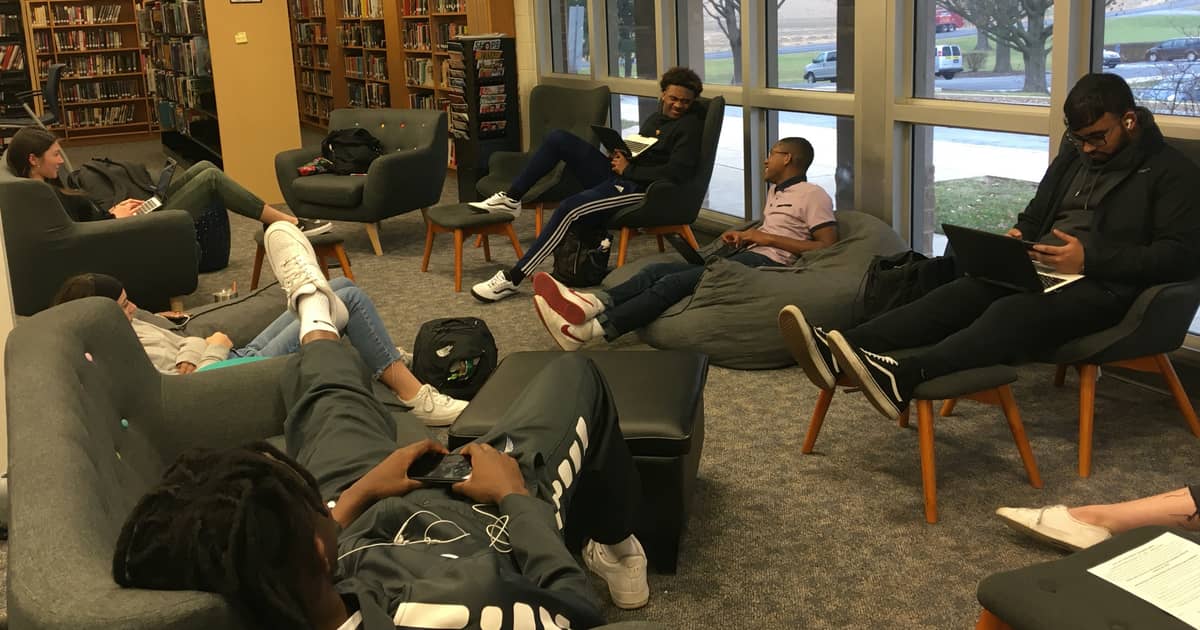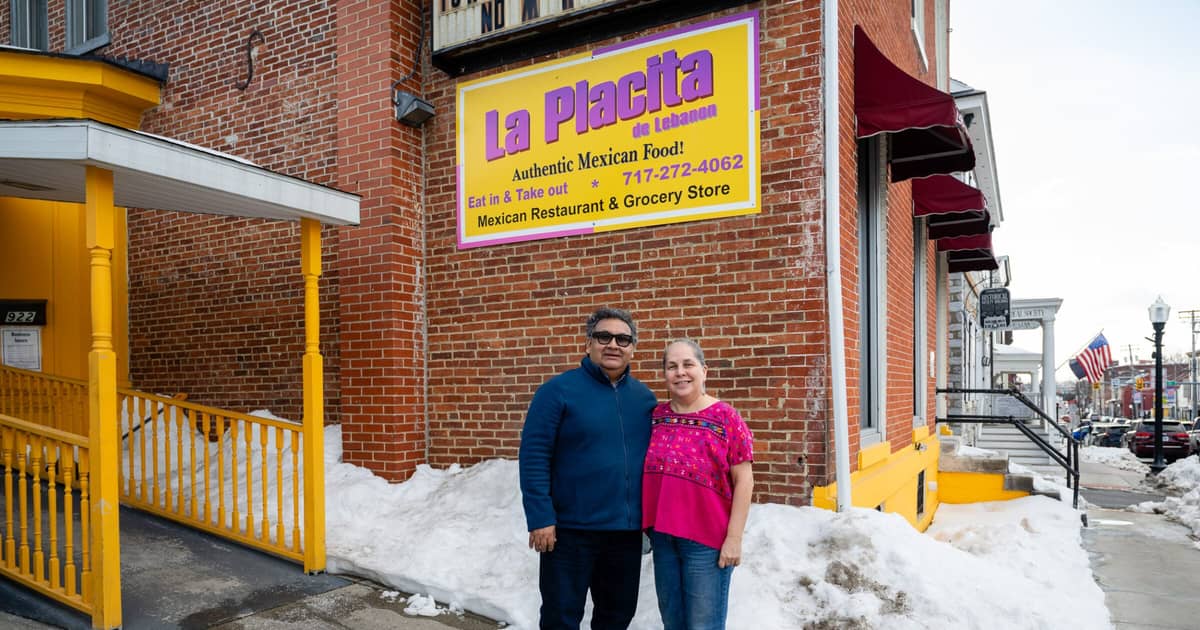In partnership with the Lebanon County Library Association, LebTown is proud to introduce “Library Letters,” a series of columns about the programming, people, and possibilities offered by libraries around the county.
Today’s letter is from Pamela Raytick, librarian at Cedar Crest Middle School.
Walk into any of the libraries in the Cornwall-Lebanon schools, and you will notice the change immediately. School libraries are transforming into versatile learning centers to meet the needs of students and curricula.
At Cedar Crest High School (CCHS), tabletops are now white boards where students can work with dry erase markers on group projects, math problems, or other class and club assignments. Dry erase walls are used for small group presentations. Students can purchase a coffee at the Falcon Perch Cart, visit the College & Career Center, or produce a video project in the one-button recording studio, complete with green screen. Students can design and print objects in the 3D printer. Databases – electronic sources of print material – have supplanted reference books, but books remain at the heart of the library.

“We still have a lot of readers – most are reading fiction, memoirs, autobiographies. Books are not going away,” CCHS librarian Katy Gerhart said.
When you enter the library at Cedar Crest Middle School, books are front and center. In the summer of 2017, the library was reconfigured to provide separate areas for books and reading, large group instruction, and a designated Makerspace area for students. The legs on the heavy library tables were modified with casters for easier movement in the instructional space that allows for multiple uses at the same time.

The library’s predominant use is students exchanging books. Most weeks, several hundred students visit to exchange independent reading books. We recently posted our total circulation for the school year: 10,977 books as of December 22! This number impressed students and teachers alike!
The Makerspace is available to students during NEST periods (study hall in your mom’s school days). Students choose an activity, and are responsible for setting up and returning the materials. This year, many students are designing and/or building using the 3D printer. Sphero robots allow students to code paths so they can travel throughout the space and around the nonfiction book shelves. Students also may use the green screen and digital camera to put themselves anywhere in the world. The conference room doubles as a sound booth to record podcasts. The library has even adopted a new name: it is now The Learning Center, a much more accurate descriptor of the space.
During the recent renovations at Union Canal Elementary School, the size of the library remained the same, but the design elements and technology added transformed the space. The high-ceilinged space is airy and bright with suspended “cloud” ceilings. There is a presentation and lesson area with a projector and white board screen. There are reading areas in and around the shelves of books sorted by genre. Noticeably absent is a traditional circulation desk; the librarian uses her laptop for book exchange at one of the many tables. Small activity stations on the countertops allow students to use magnetic pieces or other manipulatives to complete a challenge.
A separate room adjacent to the library hosts the Makerspace. Teachers can bring students to work in that space with small robots to learn coding, or complete building challenges using K’Nex and other STEAM learning materials. When asked about the addition of Makerspace activities to the library, librarian Rhanda Campbell immediately responded, “I love it, and more importantly, the kids love it!”

The libraries at Cornwall, Ebenezer, and South Lebanon elementary schools have not had any changes to their physical space. However, all are transforming into more than just “the book room”.
Students visit the Ebenezer Library weekly and enjoy a myriad of activities. They love to hear a story read aloud to them, as well as research favorite topics with both online and print resources. The Makerspace centers provide students with time to collaborate with each other on STEAM activities. Each week, students come to the library to build with Keva planks and Legos, creating an imaginary world of fairy tale characters, such as Goldilocks and the Three Bears, and even designing their own bookmarks. “Our Library is not at all quiet! Our students are encouraged to work together using critical thinking skills and open-ended exploration,” said librarian Laura Shuey.

At the Cornwall and South Lebanon elementary school libraries a class visit to the library begins with a read aloud and includes a variety of other activities. Books and reading are the primary focus. New Makerspaces On the Go – carts of learning activities – can be checked out by classroom teachers or used in the library.
The libraries of Cornwall-Lebanon School District are not your mom’s school library. In future articles the libraries of other county school districts will be featured.
























